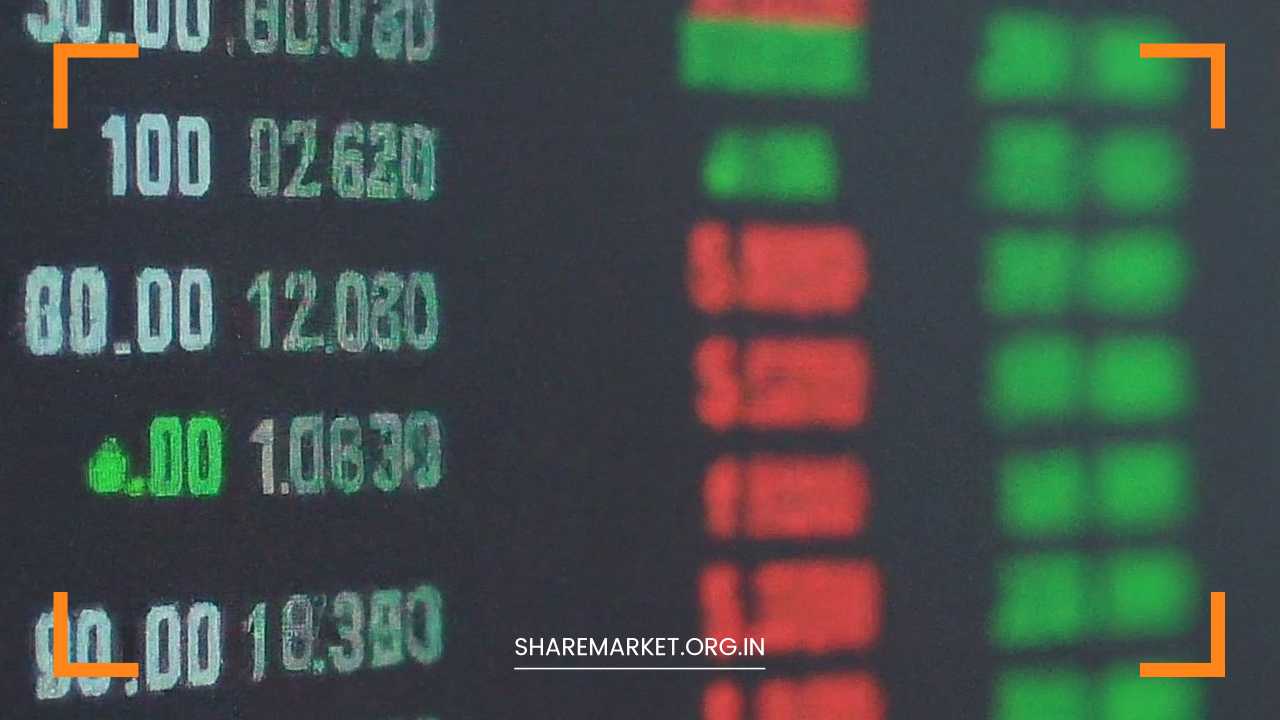Major Stock Exchanges in India

Major Stock Exchanges in India
Major Stock Exchanges in India: A Comprehensive Overview
India’s stock market has undergone significant evolution, establishing itself as a prominent global financial hub. At the heart of this growth are the major stock exchanges, which provide essential platforms for businesses to raise capital and for investors to engage in the economic progress of the country.
These exchanges have played a pivotal role in the country’s financial landscape, and understanding their functions, history, and impact is crucial for anyone interested in Indian financial markets.
The Twin Giants: Bombay Stock Exchange (BSE) and National Stock Exchange (NSE)
In the Indian stock market, two major exchanges dominate the scene: the Bombay Stock Exchange (BSE) and the National Stock Exchange (NSE). Both exchanges have significantly influenced the evolution of India’s financial sector, shaping market dynamics and investor behavior.
Bombay Stock Exchange (BSE)
Historical Significance:
Established in 1875, the Bombay Stock Exchange (BSE) holds the distinction of being Asia’s oldest stock exchange and the tenth largest globally in terms of market capitalization.
The BSE’s rich history reflects India’s economic and industrial growth over the decades. It has witnessed the transformation of India’s economy from a colonial outpost to a major global economic player.
Key Indices:
The BSE Sensex, launched in 1986, is the benchmark index of the exchange. It comprises 30 of the largest and most actively traded stocks listed on the BSE.
The Sensex is widely regarded as a barometer of the Indian economy’s overall health and performance. Additionally, the BSE has various other indices that cater to different sectors and market segments. Notable among them are:
- BSE Mid-Cap Index: Focuses on mid-sized companies.
- BSE Small-Cap Index: Represents smaller, emerging companies.
- BSE IT Index: Tracks the performance of the information technology sector.
- BSE Bank Index: Reflects the performance of banking stocks.
Derivatives Segment:
The BSE has a derivatives segment that offers futures and options contracts on indices and individual stocks. This segment allows investors to hedge their portfolios and speculate on future price movements. The availability of derivatives products adds depth to the market and provides tools for risk management.
National Stock Exchange (NSE)
Foundation and Growth:
Founded in 1992, the National Stock Exchange (NSE) is India’s largest stock exchange by market capitalization and trading volume. The NSE revolutionized the Indian stock market with its introduction of electronic trading, which significantly improved transparency and efficiency. Its advanced technology infrastructure has set new standards for trading in India.
Key Index:
The NSE’s benchmark index, the Nifty 50 (commonly referred to as the Nifty), includes 50 of the largest and most liquid stocks listed on the exchange. The Nifty 50 serves as a key indicator of market performance and investor sentiment in India.
Derivatives Segment:
The NSE is renowned for its extensive derivatives segment, which offers a range of futures and options contracts. This includes:
- Equity Derivatives: Contracts based on individual stocks.
- Index Derivatives: Futures and options based on indices like the Nifty 50.
- Commodity Derivatives: Contracts on various commodities.
- Currency Derivatives: Contracts for trading in foreign currencies.
The NSE also provides platforms for trading in debt securities, mutual funds, and exchange-traded funds (ETFs), further diversifying its product offerings.
Other Significant Stock Exchanges
While the BSE and NSE are the leading exchanges, India’s stock market ecosystem includes several other exchanges that contribute to the diversity and depth of the financial markets.
India International Exchange (India INX)
Global Presence:
Established in 2017, India International Exchange (India INX) is a significant player in the International Financial Services Centre (IFSC) in Gujarat. India INX aims to position India as a global financial hub by attracting international investors. It offers trading in equity derivatives, currency derivatives, and debt securities, catering to global market participants.
Innovation and Growth:
India INX’s establishment marks a strategic move to integrate India more deeply into the global financial system. By offering competitive trading platforms and advanced technology, India INX seeks to enhance its global presence and provide more opportunities for international investors to engage with the Indian market.
Metropolitan Stock Exchange (MSE)
Focus on SMEs:
The Metropolitan Stock Exchange (MSE), based in Mumbai, is a relatively new exchange that focuses on providing a platform for small and medium enterprises (SMEs) and emerging companies. The MSE aims to facilitate capital-raising for these businesses, offering a streamlined listing process and incentives to attract smaller firms.
Role in Capital Formation:
The MSE plays a crucial role in supporting the growth of SMEs by providing them with access to public capital markets. This helps in bridging the financing gap for smaller companies and fostering innovation and entrepreneurship in India.
Regional Stock Exchanges
Local Market Contribution:
India also has several regional stock exchanges, such as the Calcutta Stock Exchange (CSE) and the Madras Stock Exchange (MSE). Although their market share is relatively small compared to the BSE and NSE, these exchanges serve important local functions. They provide a platform for regional investors and businesses, contributing to the broader market ecosystem.
Regional Focus:
Regional exchanges help in catering to local market needs and offer a venue for smaller and emerging businesses to list their shares. They play a role in democratizing access to financial markets and enhancing regional financial inclusion.
The Role of Stock Exchanges in India’s Economy
Stock exchanges play a crucial role in India’s economic framework. Their impact extends beyond mere trading of securities, influencing various facets of the economy.
Capital Formation
Stock exchanges are pivotal in mobilizing savings and channeling them into productive investments. By providing a platform for companies to raise capital, they support economic growth and development. The capital raised through stock exchanges enables businesses to expand, innovate, and contribute to the economy.
Price Discovery
Stock prices on exchanges reflect the collective judgment of investors and market participants. This price discovery mechanism provides valuable information about the performance of companies and the overall economic climate. It helps in determining the fair value of securities and facilitates informed decision-making by investors.
Risk Management
Derivatives products offered by stock exchanges, such as futures and options, play a crucial role in risk management. Investors and companies use these products to hedge against price fluctuations and manage financial risks. This enhances market stability and allows participants to manage their exposure to various financial risks.
Corporate Governance
Listed companies are subject to stringent disclosure and governance requirements imposed by stock exchanges. These requirements promote transparency, accountability, and good corporate governance practices. By enforcing these standards, stock exchanges help in protecting investor interests and enhancing market integrity.
Investor Protection
Stock exchanges, in collaboration with regulatory bodies, work to safeguard investor interests. They implement measures to prevent market manipulation, fraud, and unfair practices. Investor protection mechanisms include regulatory oversight, disclosure requirements, and investor education initiatives.
Challenges and Opportunities
The Indian stock market has experienced substantial growth, but it faces several challenges and opportunities that impact its future trajectory.
Challenges
Market Volatility:
Increased market volatility can pose challenges for investors and affect market stability. Factors such as economic uncertainties, geopolitical events, and fluctuations in global financial markets can contribute to heightened volatility.
Investor Education:
Enhancing investor education is crucial for promoting informed decision-making and improving market participation. Efforts are needed to provide investors with the knowledge and tools to navigate the complexities of the financial markets effectively.
Technological Advancements:
The rapid pace of technological advancements presents both opportunities and challenges. While technology enhances trading efficiency and market accessibility, it also necessitates continuous upgrades and cybersecurity measures to protect market infrastructure.
Opportunities
Growing Investor Base:
India’s expanding middle class and increasing financial literacy are contributing to a growing investor base. This presents opportunities for market expansion and increased participation in financial markets.
Government Reforms:
Government initiatives and reforms aimed at improving the regulatory framework and enhancing market infrastructure offer opportunities for further growth. Measures such as easing listing norms, promoting financial inclusion, and encouraging foreign investments contribute to a favorable market environment.
Global Integration:
The increasing integration of the Indian economy with global financial markets presents opportunities for growth and internationalization. The emergence of exchanges like India INX and efforts to attract global investors position India as an attractive destination for international capital.
Final Remarks
India’s stock exchanges have been instrumental in the country’s economic transformation. The Bombay Stock Exchange (BSE) and National Stock Exchange (NSE), as the leading players, have set high standards for the industry and played a crucial role in shaping the financial landscape.
The emergence of new exchanges, such as India INX and the Metropolitan Stock Exchange (MSE), along with the continued expansion of product offerings, enhances the depth and breadth of the Indian capital market.
As India’s economy continues to grow and evolve, the stock market is poised to play an even more critical role in supporting economic development, fostering innovation, and providing opportunities for investors.
The ongoing efforts to address challenges and leverage opportunities will further strengthen India’s position as a global financial hub and drive the continued growth of its stock market.

















